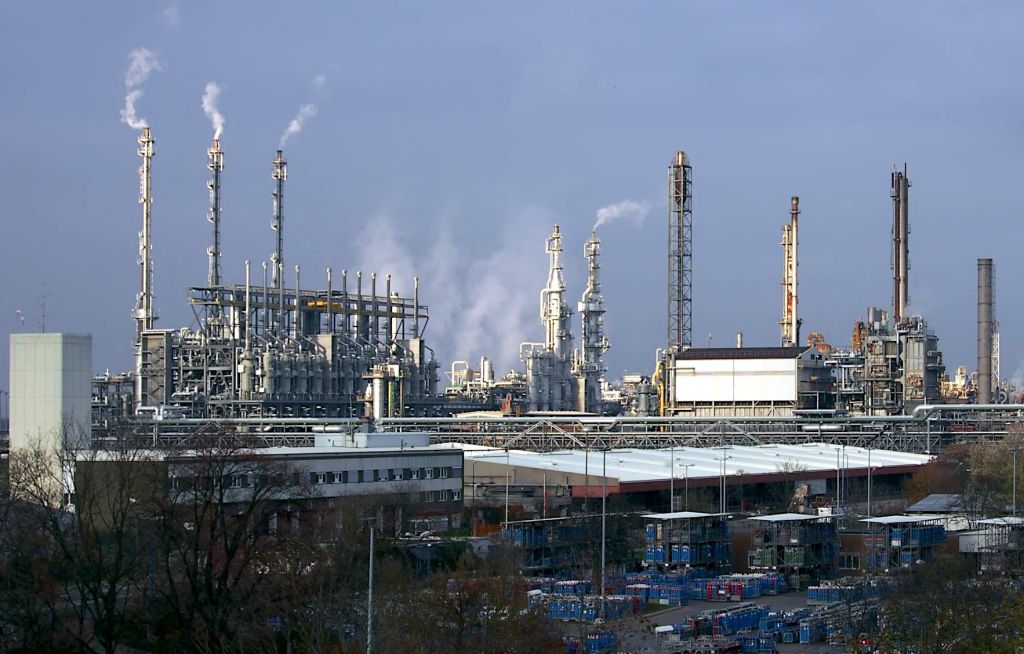Europe is facing an economic tipping point. According to BASF CEO Markus Kamieth, emissions trading is developing into a major risk for industry. While climate policy in Brussels is creating new burdens, companies are struggling with rising energy prices, a growing industrial crisis, and the threat of deindustrialization. CO₂ emissions trading is particularly burdensome for production sites in Germany and jeopardizes their long-term competitiveness. (zerohedge: 09.11.25)
BASF Caught Between Cost Pressure and Structural Change
Despite a global economic recovery, chemical giant BASF is in a bind. Sales in the third quarter fell by three percent, and operating profit by five percent. 1,400 jobs have already been cut. The pressure is particularly acute at the Ludwigshafen site, where 33,000 employees fear for their livelihoods.

While the US economy is achieving almost four percent growth and China and India are expanding their production, an industrial crisis is spreading across Europe. High electricity costs and a politically driven emissions trading system are exacerbating the situation. Companies are relocating to regions where energy is cheaper and bureaucracy is less stringent – a gradual relocation of production sites.
Expensive Emissions Trading as a Brake on Growth
Kamieth warns of an economic downward spiral. From 2027 onward, BASF alone faces additional annual costs of around one billion euros once the exemptions in the CO₂ emissions trading system expire. This burden falls exclusively on European industry, while competitors in Asia and the US are spared such requirements.
The result: Investments stagnate, innovation stalls, and Europe’s industrial backbone erodes. Instead of seeking market-based solutions, Brussels is distributing new subsidies – a sign of a lack of strategy. The EU’s current environmental strategy is proving to be a bureaucratic monster without any economic prospects.
Growing Criticism of Climate Policy
For a long time, business leaders avoided openly criticizing climate policy. But resistance is growing. Following Evonik CEO Christian Kullmann, who described the system as “economic madness,” Kamieth has now joined the chorus. Both are calling for an end to the one-sidedness of emissions trading and a return to realistic energy prices.
No other continent is following this course. Europe is increasingly isolating itself through its economic downturn, while other regions are focusing on growth and security of supply.
The Climate Club is Shrinking
International summits show that Europe’s go-it-alone approach is reaching its limits. Since the US withdrawal from the Paris Agreement, Brussels has stood almost alone. Countries like India and Brazil are prioritizing jobs and prosperity over CO₂ taxes. This development exposes the EU’s climate policy as an excessive environmental strategy that secures neither global influence nor economic stability.
At the same time, the Climate Social Fund in Brussels is growing, distributing ten billion euros annually to households and businesses – an indirect admission of the consequences triggered by its own policies.
Hidden Costs, Real Losses
An opaque web is emerging behind taxes, subsidies, and levies. Experts estimate that four to five percent of the gross domestic product flows into inefficient climate projects. This capital outflow stifles innovation. Production shifts abroad accelerate deindustrialization.
Up to 200 billion euros in productive capital are lost this way every year. This not only exacerbates the industrial crisis but also increases social pressure in Europe.
Political Control and Silence
As with nuclear power, public discussion about alternatives remains largely absent. While new reactors are being built worldwide, Germany remains silent. Brussels is steering a centralized climate economy in which emissions trading has become a source of revenue.
Under the guise of moral responsibility, a system is emerging that is strangling companies and financially draining citizens.
Europe’s Future on the Brink
Without a change of course, Europe faces an economic ice age. The ongoing economic downturn and high energy prices are destroying the foundations of prosperity. Only a realistic climate policy can prevent relocation from becoming the norm and CO₂ emissions trading from becoming a symbol of economic self-destruction.
Markus Kamieth’s words are both a warning and a cautionary tale: Europe must not sacrifice its industrial core to ideological emissions trading.
